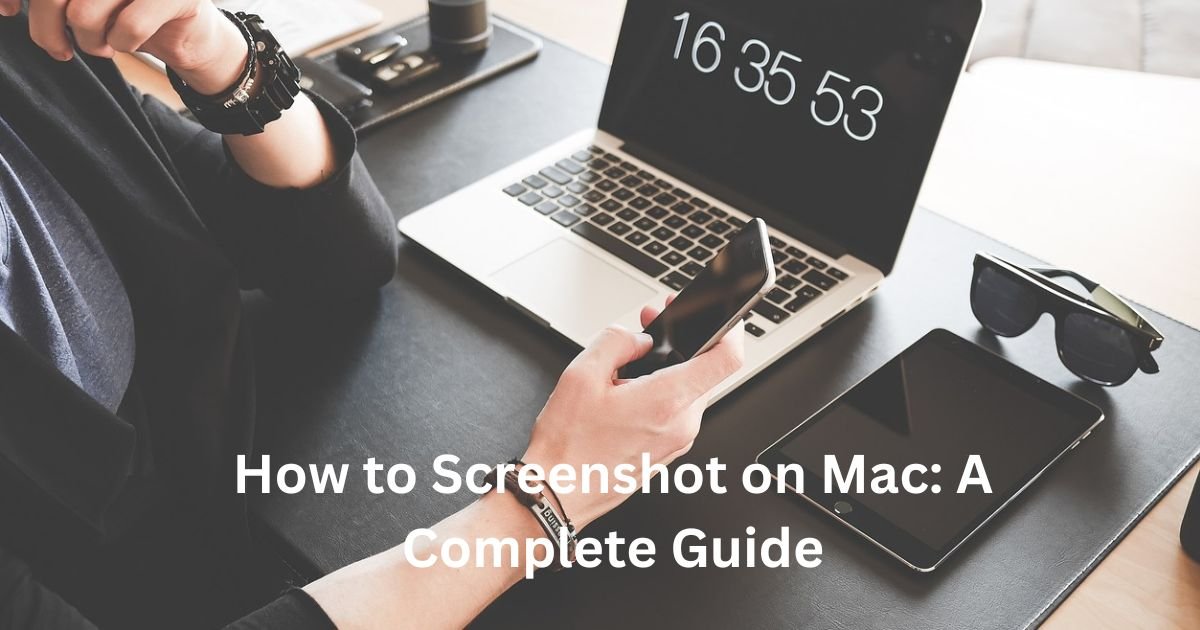How to Screenshot on Mac: A Complete Guide
How to Screenshot on Mac | Step-by-Step Guide
Learn how to screenshot on Mac with simple keyboard shortcuts. Capture full screen, selected areas, or specific windows in a few easy steps. FAQs included!
Introduction
Taking screenshots on a Mac is a quick and simple task once you know the right commands. Whether you want to capture your entire screen, a specific window, or just part of it, there are built-in tools that make it easy. In this article, we’ll guide you through the different ways to take screenshots on a Mac.
How to Screenshot on Mac: Methods and Shortcuts
Mac devices come with multiple keyboard shortcuts and tools that allow you to take screenshots efficiently. Here’s how you can do it:
1. Capture the Entire Screen
To capture everything on your screen, use this shortcut:
Command + Shift + 3
This will instantly save a screenshot of your entire screen to your desktop.
2. Capture a Selected Portion of the Screen
If you only want to capture a specific area of your screen, follow these steps:
Command + Shift + 4
- Your cursor will turn into a crosshair.
- Click and drag to select the area you want to screenshot.
- Release the mouse or trackpad to take the screenshot.
3. Capture a Specific Window
If you want to capture just a window:
Command + Shift + 4 + Spacebar
- Press the shortcut.
- Hit the spacebar, and your cursor will change to a camera icon.
- Hover over the window you want to capture and click.
4. Using the Screenshot Tool on macOS Mojave and Later
macOS Mojave and later versions have an in-built screenshot tool that gives more control over capturing screenshots and screen recordings. To use this:
Command + Shift + 5
- A toolbar will appear at the bottom with options to capture the entire screen, a selected window, or a portion of the screen.
- You can also record your screen using this tool.
Where to Find Your Screenshots
By default, screenshots are saved to your desktop with the format “Screen Shot [date] at [time].png”. If you’d like to change the save location, follow these steps:
- Press Command + Shift + 5 to bring up the screenshot toolbar.
- Click on “Options” and choose a different save location like Documents, Clipboard, or another folder of your choice.
Tips for Customizing Your Screenshots
- Change File Format: Screenshots on Mac are saved as PNG by default. If you prefer another format like JPG, you can change this using Terminal commands.
- Edit Screenshots Immediately: After capturing a screenshot, a thumbnail appears in the bottom-right corner. Click on it to open Markup, where you can crop, annotate, or edit the image before saving.
FAQs: How to Screenshot on Mac
1. How do I screenshot a specific part of the screen?
Use Command + Shift + 4, then click and drag to select the area you want to capture.
2. Where are my screenshots saved on Mac?
By default, screenshots are saved to your desktop. You can change the save location by pressing Command + Shift + 5 and selecting “Options.”
3. Can I change the format of my screenshots?
Yes. By default, Mac screenshots are saved as PNG. You can change this to JPEG, TIFF, or other formats using Terminal commands.
4. How do I take a screenshot without saving it to my desktop?
Use Command + Control + Shift + 4 (or 3) to copy the screenshot to your clipboard instead of saving it directly. You can then paste it into a document or app.
5. Can I record my screen on Mac?
Yes. Press Command + Shift + 5 to access the screen recording options, or use QuickTime Player.
Conclusion
Taking a screenshot on a Mac is straightforward once you master the shortcuts. Whether you’re capturing the entire screen, a portion of it, or specific windows, the right commands make the process quick and hassle-free. Now that you know how to screenshot on a Mac, you’ll be able to capture and share information easily!

